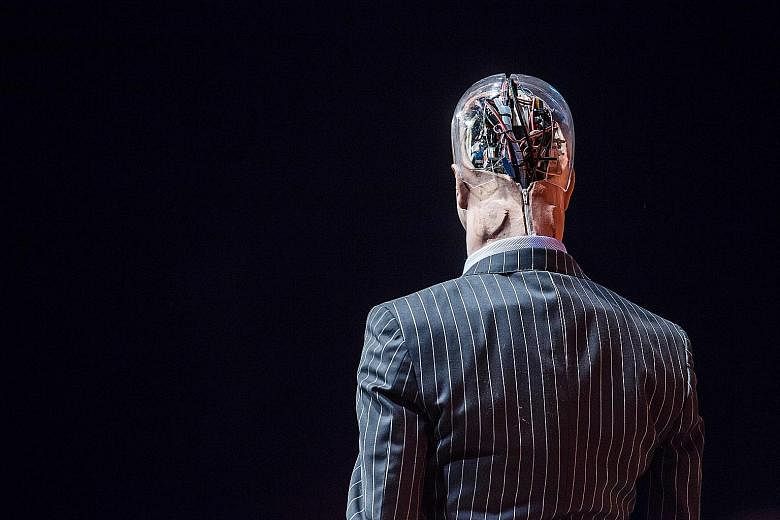SHANGHAI • China has laid out a development plan to become the world leader in artificial intelligence (AI) by 2030, aiming to surpass its rivals technologically and build a domestic industry worth almost US$150 billion (S$204 billion).
Released by the State Council, the policy is a statement of intent from the top rungs of China's government: Beijing will be investing heavily to ensure Chinese companies, the government and military leap to the front of the pack in a technology many think will one day form the basis of computing.
The plan comes with a multibillion-dollar national investment initiative to support "moonshot" projects, start-ups and academic research in AI, according to two professors who consulted with the government about the effort.
The United States, meanwhile, has cut back on science funding. In budget proposals, the Trump administration has suggested slashing resources for a number of agencies that have traditionally backed research in AI.
Other cuts, to areas like high-performance computing, would affect the development of the tools that make AI work.
China's capabilities, especially in advanced and new technologies, have long lagged behind those of its better developed neighbours, as well as Europe and the US. But a multiple-decade industrial policy to help it catch up has paid dividends.
AI is one of a growing number of disciplines in which experts say China is making quick progress.
-
The plan
-
The Chinese government set a timeline for its ambitions in AI:
2020
Chinese companies and research facilities to be at the same level as leading countries like the United States.
-
2025
Breakthroughs in select disciplines within AI that will become "a key impetus for economic transformation" in the country.
-
2030
China will "become the world's premier artificial intelligence innovation centre", which, in turn, will "foster a new national leadership and establish the key fundamentals for an economic great power".
Yet it was a foreign feat of AI prowess that provided one of the greatest impetuses for the new plan.
The two professors who consulted with the government on AI both said that last year's defeat of Mr Lee Se Dol, a South Korean master of the board game Go, by Google's AlphaGo, had a profound impact on politicians in China.
Then in May, Google brought AlphaGo to China, where it defeated the world's top-ranked player, Mr Ke Jie of China. Live video coverage of the event was blocked at the last minute in China.
As a sort of Sputnik moment for China, the professors said, the event paved the way for a new flow of funds into the discipline.
China's new plan calls for support for everything from agriculture to medicine to manufacturing.
Yet it also calls for the technology to work in concert with the country's homeland security and surveillance efforts.
China wants to integrate AI into guided missiles, use it to track people on closed-circuit cameras, censor the Internet and even predict crimes.
Beijing's interest in the technology has set off alarms within the US' defence establishment.
The Defence Department found that Chinese money has been flowing into American AI companies - some of which, it says, are likely to help the US military develop future weapons systems.
NYTIMES

